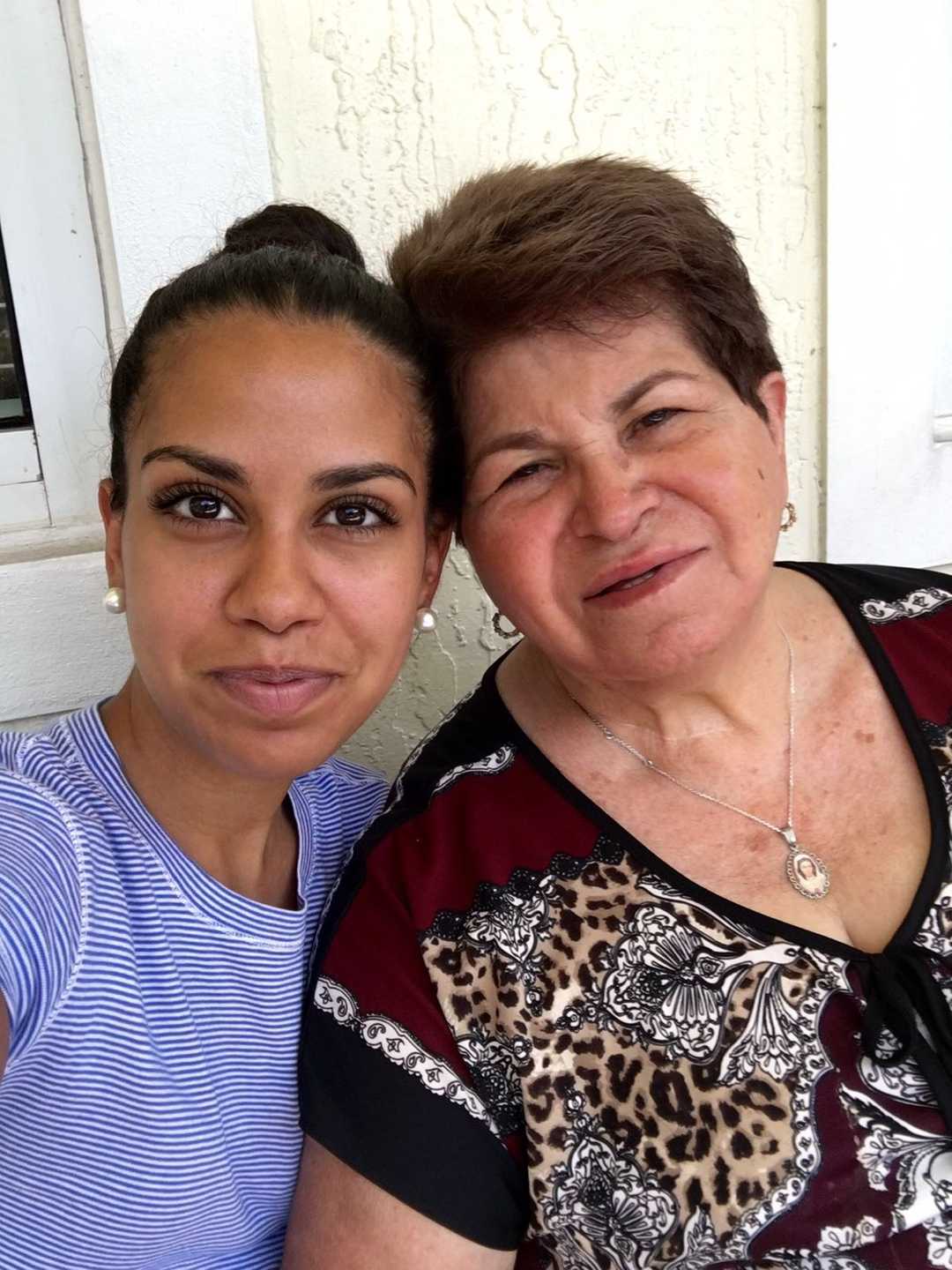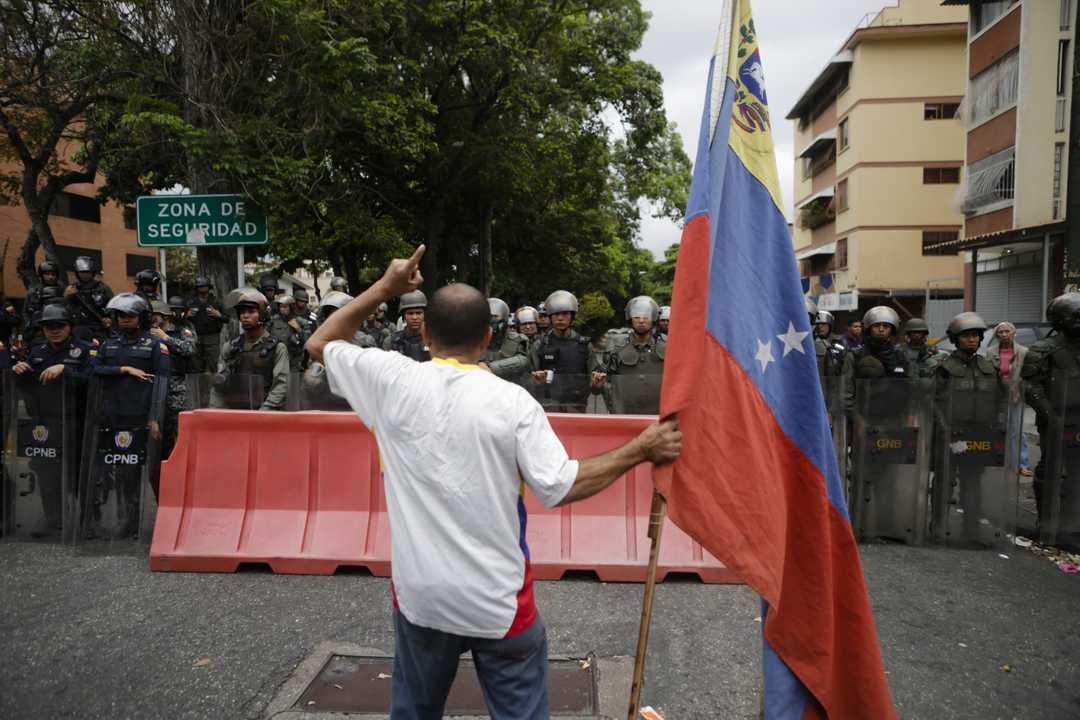Originally published by USA Today
I called my grandmother recently to check up on her. She lives in Caracas, Venezuela, and I was anxious to see how she was holding up. It was a Friday, the eve of another protest called for by interim President Juan Guaidó. Was it the sixth protest? Or the seventh? In the five months of heightened tension and crisis in Venezuela, I’ve lost count.
My grandma, Dora Lopez, was in good spirits. She was in the middle of cooking pasta con caraotas, a working class dish made up of black beans and spaghetti often looked down upon by upper-class palates, but at my grandma’s, this dish is sacred. Since our nana Felipa passed away seven years ago it’s tradition to eat Felipa’s favorite meal every Friday to honor her. At first glance, it looked like life was continuing as usual.
My grandma steered the conversation to the ongoing political strife in Venezuela. Without much prompting, grandma said, in Spanish, “Well yes, here we are, waiting for the Marines." That’s when I knew things weren’t going as usual. My grandma was putting her last hopes in the Marines — American heroes — the only ones who could save Venezuela from itself. Under what looked like good spirits, my grandma was desperate, feeling the same desperation that so many in Venezuela live with every day.
Progressives, don't rush to defend Maduro
My grandmother, a politically savvy woman who, on the good days, entrusts democratic systems, international cooperation and collective strategy to lead the way towards change, is making a plea for the U.S. to come and save her. This is the same woman who has been aghast at the Trump presidency and who wore the “Venezuelans for Gillum” button I gave her during Democrat Andrew Gillum's campaign for governor of Florida. Like me, my grandma is a progressive.
As a progressive, I'm most comfortable with solutions at the intersection of identities like race, ethnicity, class, age, gender and family background. Thinking about our shared humanity is how I approach the issues facing the increasingly diverse United States.
But I've learned that being of Venezuelan descent, a progressive and a resident of Florida is an uncomfortable intersection, one that doesn’t play well with the narratives about Venezuela being peddled at the edges of the political spectrum.

Liz Rebecca Alarcon, left, and her grandmother, Dora Lopez, in Miami, Florida, in October, 2016.
I'm exhausted carrying the Venezuelan progressive torch. As the political situation in Venezuela becomes murkier, many observers are not looking for a nuanced understanding of what is happening.
I've been badgered with questions wondering if I support U.S. intervention in Venezuela, or if I support what Nicolas Maduro's supporters wrongly call a U.S.-backed "coup attempt." I've been asked if I still oppose Donald Trump despite what he's done for Venezuelans and if I am still a Democrat.
Cristal Palacios Yumar wrote a column for Caracas Chronicles in which she shares my frustration with these false dichotomies:
“To add insult to injury, these encounters often happen with individuals with whom I would personally agree on issues like gun control in the U.S., or legalizing abortion in Northern Ireland. Yet, about Venezuela, they think in binaries: “If Trump supports Guaidó, then I cannot support (Guaidó.)”
As misguided progressive groups here in the U.S. spend their energy taking the Venezuelan embassy and calling for “Hands off Venezuela,” some progressive elected officials are erroneously conflating the wrongdoings of the U.S. in Central America with U.S. support of the Venezuelan opposition.
United States backs the constitutional leader
Meanwhile, the Maduro regime remains illegitimately in power, kills unarmed protesters, rations or shuts down power and water, encourages armed militia groups, blocks humanitarian aid from entering the country, raids the homes of his political opponents, and kidnaps the vice president of the National Assembly. And that’s just in the last few months.

In Caracas, Venezuela, on May 4, 2019
So, as a progressive Venezuelan American, I implore of us, do not lose the nuance.
To do the most good, the U.S. government should support the constitutionally backed interim presidency of Juan Guaidó, continue to establish relations with his staff, follow the opposition's lead as they navigate the negotiations with Maduro's regime in Oslo, and applaud Guaidó’s efforts to lead Venezuelans as they pressure all Venezuelan institutions, including the Venezuelan military, to oust Maduro and hold free and fair elections.
As Americans, we should continue to give aid to organizations in Venezuela, urge our elected officials to pressure Trump to grant Temporary Protected Status to the thousands of Venezuelans who have fled here, and talk to Venezuelans to better understand the daily occurrences of this ongoing crisis.
After more updates and catching up, by the end of the call, I could tell my grandma was getting back to her old self. “I hope you keep talking about what happens here,” she said to me, "and let's get out of this soon." Yes grandma, we’ll keep talking about what happens there, and we hope this ends soon, too.
One Young World Ambassador Liz Rebecca Alarcón leads Pulso, a digital organizing platform increasing the political power for Latinxs across the U.S. Follow her on Twitter @LizRebeAlarcon.



